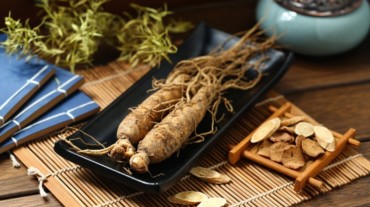
Haven’t we all seen how pregnant women are flooded with advice, especially when it comes to food? Well, some might not be true, but other things like avoiding food that generates heat in the body, is quite right. And that’s one of the biggest reasons why ginseng and pregnancy don’t go hand in hand.
Although ginseng is a brilliant herb otherwise, when it comes to pregnant women it has some major side-effects.
According to Rizwana Sayed, dietitian at Apollo Clinic, Pune, ginseng is a type of herb mainly found in Asia and America. It is generally consumed for these following reasons:
But when it comes to pregnant women, Sayed has her reservations. She says, “Ginseng generates heat in the body which is neither good for the expecting mother, nor the fetus.”
“Without a doubt, ginseng is otherwise a great herb. However, besides having such great health benefits, ginseng is generally not recommended during pregnancy at least in the first trimester,” she explains.
Sayed says, “Ginseng Rb 1 is an active chemical in ginseng, which is associated with development of defected embryos. It also has anticoagulant properties, which makes it potentially unsafe during childbirth.”

She also mentions that women who consume ginseng knowingly or unknowingly have reported more headaches, diarrhea, vaginal bleeding, and hormonal imbalances. That’s why it is better for pregnant women to avoid this herb or consult a doctor before consuming it.
“Due to the overdose of ginseng, it has been seen that babies are born with shorter length and less muscle cells. More exposure to ginseng Rb 1 means more birth defects. Do you know there are a lot of herbal teas like kahwa that also have ginseng in it, which is also not safe for the expecting mothers? Although, there is no proven data but there are ongoing studies,” says Dr Gandhali Deorukkhar Pillai, gynecologist, Wockhardt Hospital, Mumbai.
Also, read: Listen up, ladies! Steer clear of these 6 skincare ingredients during your pregnancy
Everyone knows that expecting mothers are advised to take proper rest for better development of the fetus. But ginseng won’t let that happen.
Select Topics of your interest and let us customize your feed.
PERSONALISE NOW“There are expecting mothers who have reported major mood swings and sleep disturbance, after consuming ginseng in any form. Due to this, they feel major fatigue all the time”, says Dr Pillai.
Not just that, women have also reported lower blood sugar levels, due to which they feel dizzy and nauseous all the time. “Do you know this can also increase the risk of diabetes?” she warns.
Dr Pillai also mentions that some women experience a dry mouth. That’s because ginseng releases certain enzymes in your body that impact the functioning of the salivary glands.
The bottom line is that ginseng isn’t a safe bet, especially when it comes to pregnancy. So, it’s better if you steer clear of this herb, if you are pregnant and breastfeeding. Better safe than sorry!